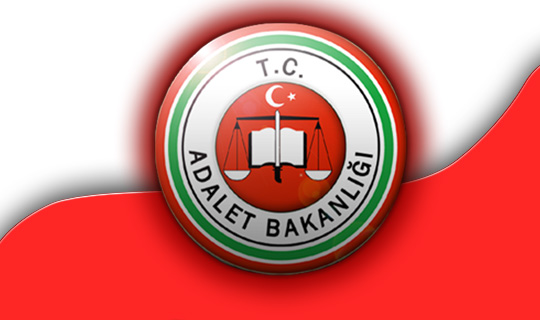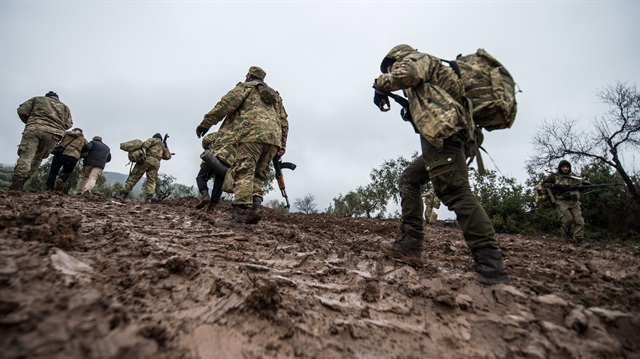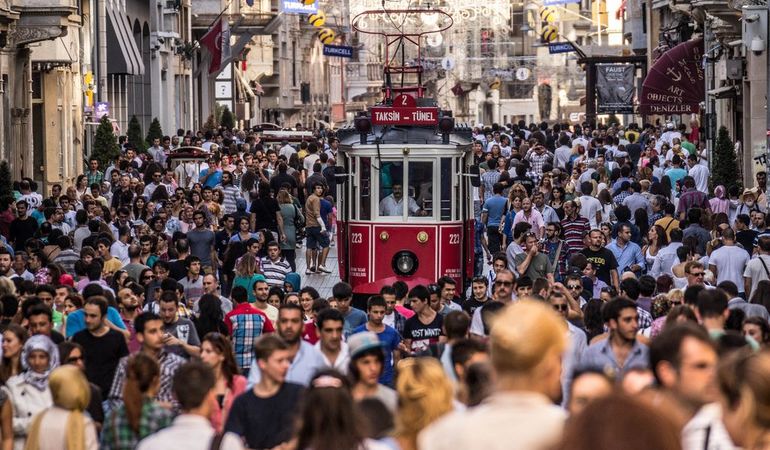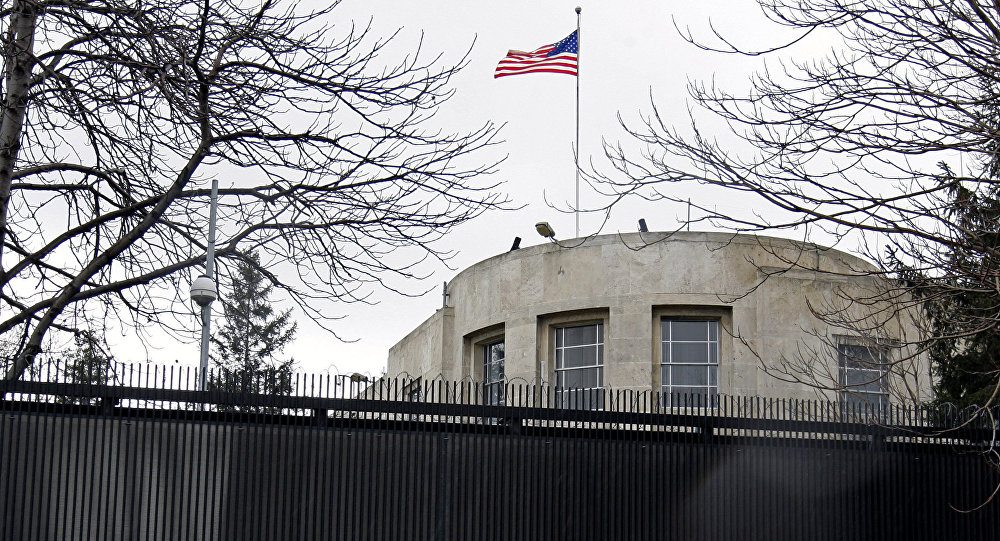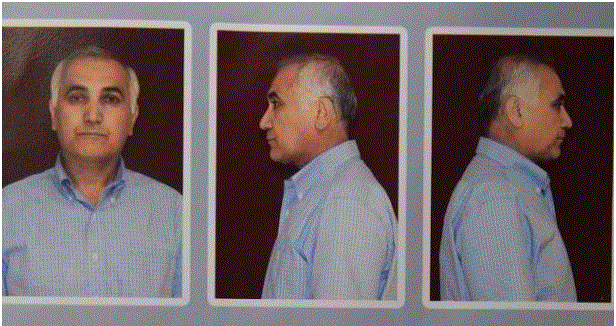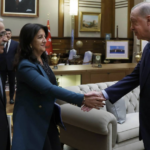Democratizing armies does not improve their efficiency. On the other hand, if a military system is not wanted, care must be taken that a civilian alternative is available before it is destroyed; otherwise reform produces not reconstruction but collapse. (1)
Finally, two days after Cook’s Foreign Affairs article, he published a third article in the Atlantic that specifically focused on developments in Turkish politics over the past fifteen years (2). As I suggested in my discussion of his Washington Post column, from the standpoint of historical information what Cook writes is much stronger than journalists for the NYT (or other publications) are capable of producing. Where Cook encounters problems is in his interpretations of Turkish events. Cook tries to persuade his readers that he is providing an objective interpretation of whatever has happened, but in fact it is nothing of the sort. The major issue that exposes Cook’s faulty approach has to do with the past and present of Turkish state institutions.
In his Atlantic article, Cook is clearly concerned with providing much more detailed and accurate information for his readers. Part of that must be because the Atlantic’s long format allows for more space. At the same time, my estimate is that Cook himself realized what gaping holes his Washington Post article entailed. In the Atlantic article he seems to be focused on shoring up some of the points from the Washington Post piece; maybe it is simply the long version of that first article.
The basic messages, however, are no different, and the same problems crop up again and again. Cook starts off the Atlantic article with a familiar canard — that the AKP and Erdoğan were once good, but then they went bad. To provide substance for his narrative, Cook resorts to ipse dixit statements and distortions, always assuming that his readership shares his prejudices. He claims, for example, that “Turkey today looks less like a liberal European democracy and more like the kind of one-man autocracy commonly found in the Middle East.” Never mind the fully democratic elections and all that. At the end of the second paragraph, Cook then labels the ongoing process and current situation in Turkey as “re-authoritarianization.”
After a statement like that, one would expect a detailed historical explanation of exactly how Turkey threw off the authoritarianism imposed on it in the 1920s, and then how it was supposedly re-imposed by the AKP and President Erdoğan. But predictably, the reader does not receive any such narrative — because nothing of the sort actually happened.
Instead, Cook embarks on a rather conventional review of Turkish history since the 1960s. Over four paragraphs, Cook guides the reader through Turkey’s long and tortuous relationship with the EU. The exposition begins with a pious reference to Atatürk of the sort that has become virtually mandatory (“secularizing and modernizing reforms”), as well as the usual glossing over of the Kemalist Republic’s political realities: “Turkey was then a country that featured some democratic practices.” Only at the very end of the paragraph does he intimate that there actually was a coup in 1960. And even then, he does not mention any of the coup’s consequences: the political parties that were closed, all the politicians that were jailed and put on trial, the preposterousness of the Yassıada kangaroo court, the three ministers that were eventually executed, novel institutions like a military-civilian but military-dominated National Security Council that was elevated into virtually a superior government. Moreover, the “glacial pace” of integration with the EU after the initial agreement — if one goes only by Cook’s narrative — does not seem to have had anything to do with these military coups (of 1960, 1971, and 1980) that followed one another over the decades. Apparently, what happened with or over Cyprus was related to these military takeovers, but not the course of Turkish politics in general.
Anyway. Cook then leaps forward to the mid-1990s when positive developments in EU relations began to occur. Everything seemed to go well even after the AKP came to power (in 2002, not 2003 as Cook indicates), but everything went bad from 2007 onward. That, of course, is precisely the point at which the Turkish military began to lose its ability to direct Turkish political affairs.
Even though the cause-and-effect relationship is never elucidated, Cook claims that the political and judicial events in the years following the 2007-2008 period meant that
Turkey’s democratic reversal expanded and accelerated. Erdogan was emboldened by the decapitation of the military and imprisonment of other opponents, at the same time that he was unrestrained by the now-dim prospect of EU membership. He moved to consolidate his personal power and in the process transform Turkish society.
That entire quote, plus the remainder of the paragraph that it is taken from, are again ipse dixit assertions, clichés really, copied-and-pasted from narratives already established by the AKP’s domestic and international opponents. They are de-contextualized and, on several points, simply erroneous. But instead of dwelling excessively on details, I want to proceed to Cook’s following paragraph, where he enters the topic of Turkey’s judiciary.
Cook claims that after the AKP narrowly avoided being closed down by the Turkish Constitutional Court in 2008, Erdoğan became bent on controlling the judiciary so that it would not ever again threaten him or the AKP. To that end, Cook states that the AKP sponsored a “September 2010 referendum that gave the AKP greater ability to pack the courts with sympathetic judges.” Sounds bad, right? Only if one is not aware of the history of those courts and judiciary.
The reality is that Turkey’s judges and public procurators have never functioned in a way comparable to judges and public procurators (or state attorneys, or DA’s, or the Queen’s Counsels) in other established Western societies. Turkey’s modern judiciary has roots only in the 1840s and the Tanzimat era. From that time, there began the slow establishment of a body of civil law, plus the training of judges qualified to interpret and lawyers qualified to represent. But from the very beginning, the Ottoman judiciary was a subordinate, non-autonomous element of the quasi-Bismarckian modern-state-in-the-making, and of the elites that controlled that state. This means that even before the end of World War I and the National Struggle, the judiciary never functioned as an independent body.
Then in the Republican era, the judiciary’s function became even more vital to maintaining ideological control over Turkish society. As the new military-bureaucratic elite imploded into Anatolia and began to play god to society by beginning to shape an entire nation in its own image, it also forged the kind of legal profession that it needed. Otherwise put, the lawyers and judges that were trained and educated to fill the ranks of the Republican judiciary totally identified with Kemalism’s top-down modernizing project, and wholly internalized an attitude of absolute loyalty to the new state. In other words, the legal profession was never about just interpreting the law, or maintaining a rule of law that treated all segments of Turkish society equally and neutrally. Instead, the Turkish legal community was intended to provide legal justification and protection for the system and its aims, and to maintain it through practical implementation.
That historical reality is the reason why, when I moved to Turkey in 1999, for example, the Turkish legal system was already a shambles. First and foremost, as some key surveys did reveal, a majority of judges and public procurators defined their mission not as simply “administering justice” but “defending the state.” On top of that, in major political cases the military exercised direct influence and unwritten rights of intervention. Under military régimes (as after 1960, after 1971, and after 1980) it was futile for leftists in particular to expect any sort of fair treatment. This was total prejudice that was able to masquerade as “standard justice” because no alternative, critical consciousness had yet arisen to oppose and challenge it. In more down to earth ways, the court system wasn’t computerized and still functioned almost entirely on the basis of hard copy dossiers — hundreds of thousands of them, stacked in every nook and cranny that they could be stored in. Cases progressed at a snail’s pace. Corruption was rife, judges were easily bought, or else were free to abide by their ideo-political preferences, even their personal likes or dislikes, with total impunity. Long before the AKP came to power, in no way was this judiciary “independent” in the manner that Americans or Western Europeans understand. Instead, it was still a cog in the rusting Kemalist state machinery.
Only with that background information, is it possible to understand how extremely one-sided Cook is when he asserts that the AKP “compromised the independence of the judiciary.” In fact, the AKP has increased the Turkish judiciary’s efficiency, and even built massive new courthouses to centralize the extremely diffuse court system. The domination of the Turkish judiciary by Kemalist elements is still the case, albeit in somewhat watered down fashion (3). The infiltration of Gulenist judges, which began in the 1980s at the latest, is only the most recent example of an intrinsically alien and hostile (because non-professional and not merit-based) element carrying out its own anti-democratic plans to dominate the judiciary. It still remains the case that the Gulenists and the AKP are fundamentally different, and impossible to put on an equal footing as just two different varieties of Islam/ism. The AKP and President Erdoğan are the elected representatives of the Turkish people, and they do have legally-accorded abilities to pass legislation and carry out decisions that affect the judiciary.
[to be continued]
NOTES
(1) Eric Hobsbawm, Age of Extremes. The Short Twentieth Century, 1914-1991, Chapter 16, Part IV.
(3) Istanbul’s Bar Association (the world’s second largest), for example, headed by Ümit Kocasakal, is a notoriously ulusalcı community. Ulusalcılar are left-Kemalists or left-nationalists.
Yazıyı beğendiysen, patronumuz olur musun?
Evet, çok ciddi bir teklif bu. Patronumuz yok. Sahibimiz kar amacı gütmeyen bir dernek. Bizi okuyorsan, memnunsan ve devam etmesini istiyorsan, artık boş olan patron koltuğuna geçmen lazım.
Serbestiyet; Türkiye'nin gri alanı. Siyah ve beyazlar içinde bu gri alanı korumalıyız. Herkese bir gün gri alanlar lazım olur.




